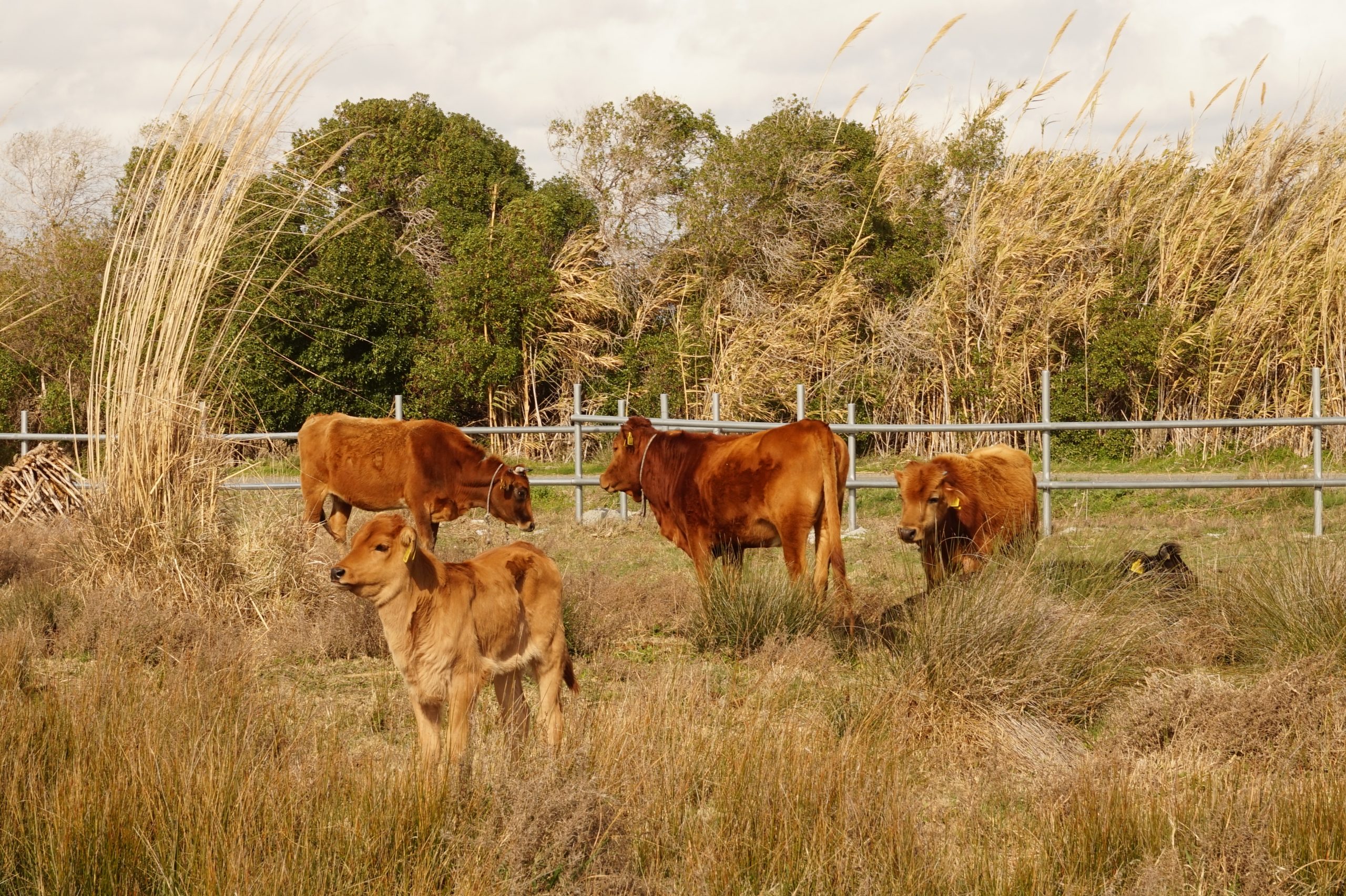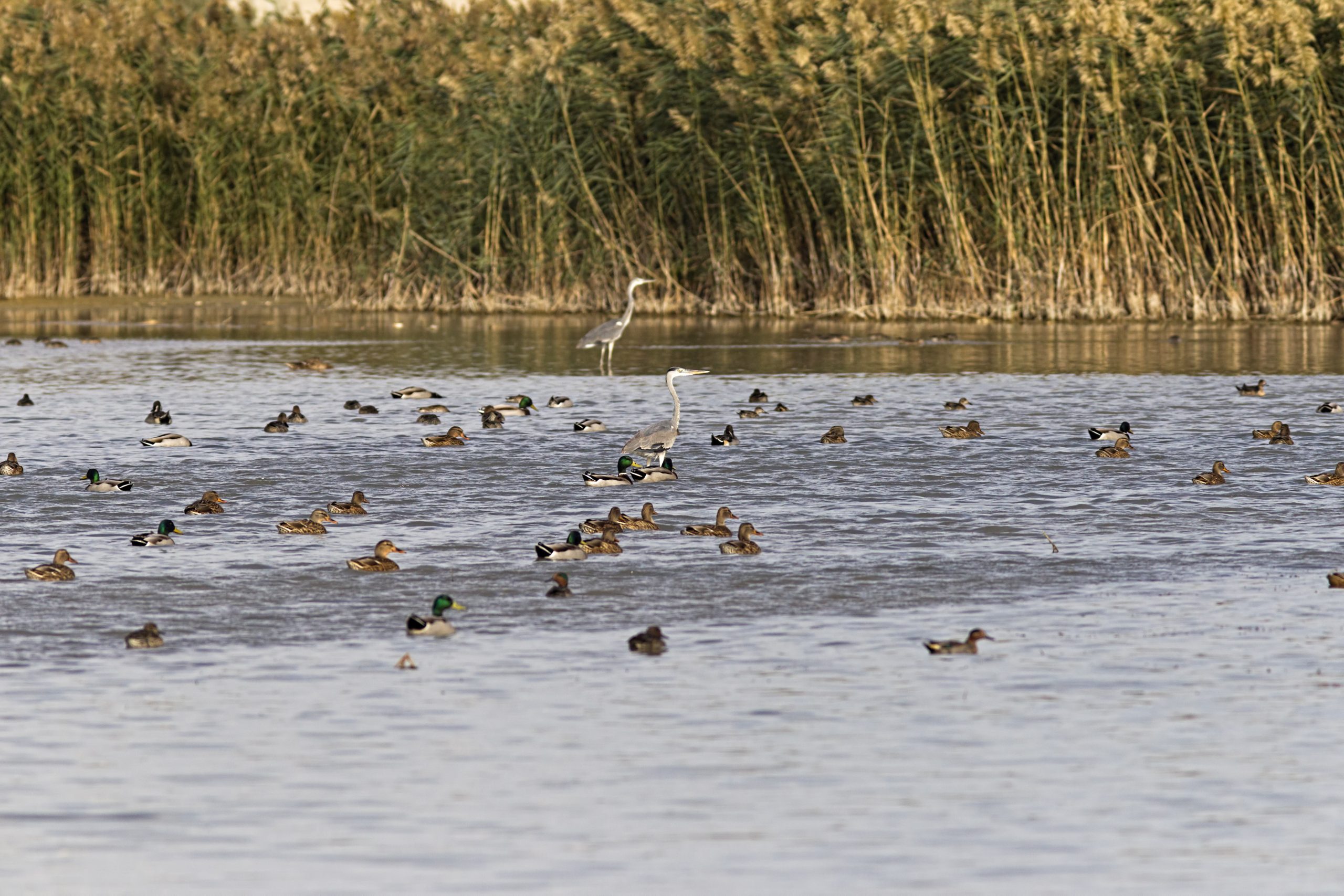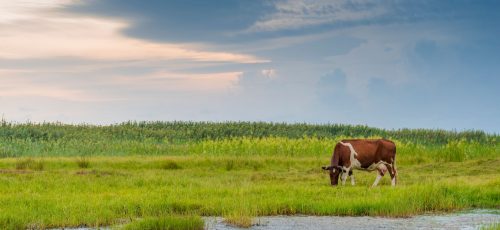- Projects
Habitat restoration and wise use for Akrotiri and Cape Pyla
In July 2021, a new 3-year project started, funded by Darwin Plus UK, which aims to restore important wildlife habitats within the Cyprus SBAs, focusing on Akrotiri wetlands and native scrub on Cape Pyla (Dhekelia), to promote wise use of the area and at the same time develop eco-tourism opportunities to support the local economy.
This project aims to turn key sites on Akrotiri and Cape Pyla from areas where wildlife is hanging on, to areas where wildlife can really thrive! It also aims to increase opportunities for the Akrotiri community to benefit from living in a protected natural area, specifically through supporting the long-term economic viability of cattle grazing as a sustainable conservation tool and through the promotion of the area as a wildlife-friendly tourism destination.
Leading the project is BirdLife Cyprus, with Terra Cypria, the Cyprus Sovereign Base Areas Administration Environment Department (SBAA ED) and the RSPB (BirdLife in the UK) as project partners.
Why these two areas?
Akrotiri Peninsula and Cape Pyla are recognized and designated as protected for their biodiversity importance. The effective management of these areas -something this project aims to significantly enhance can make a big contribution to efforts to conserve biodiversity in Cyprus. Akrotiri Peninsula has been identified as an Important Bird and Biodiversity Area, following recognized BirdLife International criteria, and the wetlands on the peninsula enjoy protected status under SBA Ordinances. Cape Pyla is designated as protected for its habitat value and for key flora and fauna. The Akrotiri wetlands are also characterized as a RAMSAR wetland of international importance.
Though enjoying legal protection, the reality on the ground is that both areas urgently need conservation action allied with management for wise use. Currently, there is increasing visitor pressure (especially at Akrotiri), insufficient practical conservation management and growing pressure for development. Most areas are heavily disturbed by vehicle traffic -especially offroad- and suffer from littering. At the same time, the expansion of reeds at the local marshes has resulted in loss of biodiversity and has obstructed the views for visitors and nature lovers. Cattle grazing can do wonders for managing the reeds, but its economic viability needs to be enhanced. At the same time, threatened plant species need targeted actions to boost their populations. Invasive acacia remains hard-to tackle, especially on Cape Pyla, where acacia thickets are also used by illegal bird trappers. Finally, access and traffic to the Akrotiri Peninsula needs to be managed in order to protect important wildlife species and habitats.
Cattle grazing can do wonders for managing the reeds, but its economic viability needs to be enhanced. At the same time, threatened plant species need targeted actions to boost their populations. Invasive acacia remains hard-totackle, especially on Cape Pyla, where acacia thickets are also used by illegal bird trappers. Finally, access and traffic to the Akrotiri peninsula needs to be managed in order to protect important wildlife species and habitats.
How will the project benefit these areas?
This new project has the potential to make a real difference in the conservation, sustainability and wise use of the Akrotiri area and Cape Pyla and at the same time support the local community.
The project aims to address these problems through targeted habitat and visitor management actions. It will benefit the local Akrotiri community and the wider public in Cyprus, through biodiversity conservation actions allied with promotion of wildlife-friendly tourism on the peninsula (thus also enhancing ecosystem services). It will also promote this alternative tourism to the area during “quieter” touristic periods, i.e. early spring and winter.

What will the project team do?
Together with our partners, we will address the restoration and wise use issues at Akrotiri and Cape Pyla, with the following actions:
- Acacia saligna post-clearance habitat restoration methods at Cape Pyla Acacia is an invasive plant species outside its natural range, due to its high tolerance and reproductive ability and it can have a wide range of negative effects on native biodiversity and ecosystems. Large-scale clearance of Acacia has taken place at Cape Pyla, but due to its aggressive root systems and production of large number of viable seeds, Acacia regrows. The project team will carry out a desk exercise to identify sustainable habitat restoration options to prevent or minimize regrowth of Acacia, in areas where clearance has taken place, based on current literature. Based on this study, different management and restoration methodologies will be tested in the field in trial plots to assess their effectiveness.
- Reed management solutions at Zakaki Marsh Reed expansion within marshes reduces biodiversity, because it blocks out other marsh vegetation and simplifies habitats for wildlife. Zakaki Marsh has been taken over by reeds in recent years resulting in lost habitat diversity and the open pool area, which was important for key bird species, such as Ferruginous Duck Aythya nyroca and Black-winged Stilt Himantopus Himantopus. To identify reed management solutions for Zakaki Marsh, a hydrological study will examine water quality and water flow (input-output) of the marsh that, together with reed ecology requirements, will pave the way for the drawing up of a set of recommendations for long-term reed control. At the same time, specialist mechanical reed clearance actions will take place.
- Making cattle grazing sustainable at Akrotiri Marsh Cattle grazing can be a very successful way of long-term reed management and a lot of progress has already been achieved on this under the Akrotiri Marsh Restoration Project (2015-2017). Communication with the graziers therefore is an important aim of the team on the new project. In addition, supporting the economic viability of cattle grazing is vital and this can be enhanced through the drawing up of a marketing plan for Akrotiri Marsh ‘eco-beef’. In addition, conservation actions for important marsh flora will take place, through identification of key sites for threatened plant species and the building of seed banks.
- Reducing disturbance to key wildlife species The mapping of sensitive wildlife sites will be the starting point, followed by the drawing up of a plan (agreed by all relevant stakeholders, including local communities and other users) for limiting human access to these sites. Limitation of access will be on a case by- case basis and may be seasonal. This action will be carried out alongside actions to restrict existing road access to highly sensitive wildlife sites to be completed under a MAVA-funded project led by Terra Cypria.
- Enhancement of eco-tourism opportunities within Akrotiri peninsula The project team will implement various actions to enhance eco-tourism opportunities within Akrotiri Peninsula in order to increase the number of visitors to Akrotiri in a safe way and also to raise awareness on the importance of the area for wildlife. The project will support the local community to develop its eco-tourism potential by creating a dedicated Akrotiri eco-tourism website, holding nature-based festivals and creating wildlife guides for visitors to the peninsula. These actions will take place in parallel with the installation of wildlife cameras and the creation of carefully designed walking routes in the area, so that visitors can experience the peninsula without disturbing the wildlife.
The project is funded by the Darwin Plus Initiative.
Duration: July 2021 – June 2024
Update
Given the recent and ongoing changes in the Akrotiri Peninsula that seem to be affecting the hydrological balance and the overall ecosystem functioning of the wetlands in the area, BirdLife Cyprus took on a two—year (2023 – 2024) project funded by the John Ellerman Foundation (UK) to review the current knowledge on the hydrology and ecology of the Akrotiri Peninsula wetlands, including pressures and threats, as well as key trends. Based on the above, a set of clear recommendations were prepared for future management of this high ecological value wetland system.





